|
|
|
Thames and Hudson
|
«In the nineteenth century there was an amazing flowering of ironwork forms, mass produced and widely distributed, but of extreme variety and richness of design. Too often they have been overlooked, or referred to mistakenly as «wrought iron». E. Graeme Robertson's interest began decades ago with the realization that cast iron was being destroyed because its aesthetic value was not recognized. To remedy this situation he wrote a number of books on Australian ironwork and then, with his daughter Joan, traveled all over the world to compile this superb photographic inventory of the forms taken by cast iron ornamentation, its national variations, its relationship to architecture, and its contribution to the attractiveness of buildings. Supported by introductory texts, glossary, and bibliography, Cast Iron Decoration will be equally valuable to architects, art historians, and designers — and to anyone who cares for our cultural heritage. 521 illustrations.» |
|
This is the last in the series of Sir John Boardman's acclaimed handbooks on Greek sculpture; a sequel to similar volumes on the Archaic and Classical periods. Here, the story continues through the fourth century B.C. to the days of Alexander the Great. The innovations of the period are discussed, such as the female nude and portraiture, along with many important monuments including the Mausoleum of Halicarnassus and several of the great names such as Praxiteles and Lysippus who were lionized by later generations. The volume also presents Greek sculpture made in the colonies of Italy and Sicily from the Archaic period onwards, as well as that made for eastern, non-Greek rulers. A final section considers the role of Greek sculpture in moulding western taste to the present day. |
|
For most people there is no more satisfying expression of Greek art than its sculpture. It was the first, the only ancient art to break free from conceptual conventions for representing men and animals, and to explore consciously how art might imitate or even improve upon it. The first stages of this discovery, from the semi-abstract beginnings in the eighth century BC to the more representational art of the early fifth century, are explored and illustrated in this handbook. |
|
For most people there is no more satisfying expression of Greek art than its sculpture. It was the first, the only ancient art to break free from conceptual conventions for representing men and animals, and to explore consciously how art might imitate or even improve upon it. The first stages of this discovery, from the semi-abstract beginnings in the eighth century BC to the more representational art of the early fifth century, are explored and illustrated in this handbook. |
|
The impact of more than one hundred years of aesthetics, form, and content on developments in graphic communications. This unique history of design, documenting over a century of creative brilliance, has now been brought into the twenty-first century. Showcasing the most influential designs and designers from 1900 to the present, this outstanding collection illustrates how the best ideas perpetuate themselves over time, one great concept inspiring the next. More than one hundred seminal images—one from each year—are shown alongside the works that influenced their creation and the designs that were inspired or evolved from them. Examples include work from both famous and anonymous graphic artists from Toulouse-Lautrec to Milton Glaser and Art Chantry, visually juxtaposing each example to illustrate a theme or artistic device. |
|
This comprehensive and authoritative study of post-war American art begins with Abstract Expressionism and concludes with the experimental and radical art of the beginning of the 21st century. Along the way David Joselit analyses what has shaped American art: how the mass media has framed the way in which artists view the world; how the issue of personal identity has emerged as a powerful political platform; and how traditional art media have been joined by readymade commodities, film, video, text and multiple other art forms. In juxtaposition with canonical movements and figures — Oldenburg, Johns, Warhol, Ruscha, Sherman, Schnabel, Koons and Barney — Joselit introduces lesser known contemporary artists and practices. Fully illustrated, this book offers a look at one of the most dynamic and controversial periods in art history. |
|
Published in conjunction with the first large-scale, multi-medium, posthumous retrospective of Willem de Kooning's career, this publication offers an unparalleled opportunity to appreciate the development of the artist's work as it unfolded over nearly seven decades, beginning with his early academic works, made in Holland before he moved to the United States in 1926, and concluding with his final, sparely abstract paintings of the late 1980s. The volume presents approximately 200 paintings, sculptures, drawings and prints, covering the full diversity of de Kooning's art and placing his many masterpieces in the context of a complex and fascinating pictorial practice. An introductory essay by John Elderfield, MoMA's Chief Curator Emeritus of Painting and Sculpture, provides an in-depth exploration of de Kooning's development, context and sources, theory of art and working methods. Sections devoted to particular areas of the artist's oeuvre provide an illustrated chronology of the period and a brief introduction, as well as detailed entries on groups of works. With lavish, full-color documentation, this landmark publication is the most complete account of de Kooning's artistic career to date. Willem de Kooning was born in Rotterdam, The Netherlands in 1904, and moved to the United States in 1926. His early figurative painting slowly gained attention, and his black-and-white abstractions of the late 1940s made him a leader among the New York Abstract Expressionists; but the early 1950s Woman paintings made him famous for the violence of their depiction. De Kooning moved to Long Island in 1963, working in both abstract and figurative styles through the 1980s. He died in 1997. |
|
This is the latest book from the pattern cutting and construction experts at Bunka Fashion College in Japan, school of Yohji Yamamoto. It includes 17 fashionable and achievable designs, with easy-to-follow step-by-step instructions and diagrams that guide the reader through the draping process. With two folded patterns at the back, this book provides inspiring ideas and highly practical techniques for anyone wanting to learn about draping. |
|
Pattern is back, and what better way to celebrate its revival than with a cool compendium of the best pattern design from around the globe? This exciting new book showcases some of the most innovative pattern designs, including graphics, textiles, fashion, furnishings, ceramics, tiles, wallpaper, and stationery. While many of the featured designers work commercially, others are independent players whose work is cutting-edge even though, or perhaps because, they don't follow conventional techniques or disciplined structures. Figurative, funky, abstract, pixel-based, graphic, or retro patterns are all featured in this visual feast of the best work to emerge in the last five years. |
|
This fresh, engaging volume provides the key ideas for a better understanding of today's cinematic style and the reference terms that are crucial to film studies by challenging preconceived ideas and cliches about cinema. It defines the main notions of film, explains major dates in its history, deciphers the leading works, and presents the portraits of thirty great filmmakers. Original photographs of legendary actors and directors both on set and screen provide real insight into their glamorous world, and a glossary of key film terms ensures that the reader is never overwhelmed by jargon. If you want to understand and talk about film, Talk About Cinema offers alternative ideas that address numerous time periods and movements, synthesizing all the important information into one fun, didactic, and readable volume. |
|
Now thoroughly revised and updated, this systematically presented coursebook tells you everything you need to know about advertising, from how to write copy and choose a typeface, to how agencies work and the different strategies used for print, TV or cinema and other media, including interactive. Exercises throughout help the reader judge their own work and that of others. By getting to the heart of the creative process in a way that other guides don't, the book can help anyone produce better advertising. This new edition features a thoroughly revised and updated chapter on interactive advertising, with new exercises and some thirty new illustrations. Invaluable. ( Creative Review ). Enormously encouraging, practical and entertaining. If this book could stand in front of a class (of creative students) and talk, I'd be out of a job. (Tony Cullingham, Course Director, The Watford Creative Advertising Course, West Herts College.). |
|
This is a foundation course in the art and practice of digital animation. Step-by-step tutorials, practical tasks and assignments explain the entire animation process and allow you to practice newly learned techniques and processes. Tips, trade secrets and career advice will help you take your next steps in the animation industry whether you want to work for a small independent company, work freelance or join one of the worlds largest animation studios. |
|
This volume presents photographer Cartier-Bresson's own selection of 130 of his photographs of Paris, taken over 50 years. Accompanying text discusses the history of Cartier-Bresson's engagement with the city and its place in his achievement. |
|
Unlike other packaging titles, which simply provide templates to copy, this book enables designers of all packaging types to create 3-D packaging forms that are specific to their needs rather than based on an existing design. It teaches a simple net construction system a one-piece 2-D configuration of card seen when a 3-D package is opened out and flattened which enables the designer to create a huge number of very strong 3-D packaging forms that are both practical and imaginative. Each chapter concludes with photographs and net drawings of 610 creative examples of packaging designs made using the principles outlined in the preceding chapter. Structural Packaging gives the reader an understanding of the underlying principles of packaging construction and the technical knowledge and confidence to develop a greater number of their own unusual and innovative designs than any comparable book. |
|
Stickerbomb is the first collectable, fully-peelable sticker book featuring illustration, graffiti and graphics. It is filled with an amazing collection of over 250 specially commissioned stickers by artists, illustrators and graffiti writers from around the world. An essential part of the street art movement, inexpensive, and easy to produce, stickers often act as an informal business card for graffiti writers, and a quick and effective promotional tool for many artists and illustrators. As more and more stickers are placed around major cities in the world, interest in the subject keeps growing. Many street art books to date have featured photographs of stickers spotted in urban environments packed with examples of the real thing. Stickerbomb offers the fun of peeling and sticking, and of owning and collecting cool stickers. |

|
Shopping is an event which implies much more than just the act of purchasing. Unusual design concepts and immaculate shapes engage all of our senses, making shopping a unique experience. The range is complete between minimalist designs with reduced colors and forms, to spaces with a cozy, imaginative salon-like ambience. |
|
Taking font creation back to basics, this comprehensive book explores innovative ways to design contemporary lettering of all kinds, examining everything from classic design examples to 3D and illustrated fonts, digital lettering and radical conceptual alphabets. Handmade Type Workshop is ideal for anyone looking to move beyond existing typography and fonts to create, explore and use original or customized letterforms. |
|
European metropolises like Berlin, Rome, Barcelona, Istanbul or London are fascinating because of their history, the people, and the feeling for life but especially because of the buildings. Architectural details of all epochs and styles are the focus of this book: the window as the eye of the house, balconies as retreats in the midst of the urban din or stairs as the embodiment of change. Aside from their functions, these details lend a building individuality, provide it with a face and determine its appearance. European Architecture in Details takes the reader on a journey through the plazas and streets of the most exciting 20 cities of Europe, presenting an unusual variety of architectural details. Be it something new, old, beautiful or strange, every city appears in a thoroughly new light. |
|
This is an affordable compact edition of the major monograph that offers new insights into the life and work of this astonishing creative genius. Often Bruegel's subjects are traditional: stories from the Bible and mythology, scenes of country life, and cycles of the seasons. But among the multitude of people within them are mysterious figures, enigmatic incidents, and demonic faces. The meaning of these remarkable paintings continues to intrigue us today, more than four centuries after the artists death. An art historian and a painting conservator and restorer, each of the authors bring their special expertise to bear on the many questions that still remain about Bruegel's life and his intellectual outlook. Richly illustrated, this important book reveals much new information about one of the most intriguing figures of Renaissance art. Extensive notes, a chronology, bibliography, and a list of Bruegel's exhibitions and catalogues complete the work. It will be an indispensable addition to the libraries of scholars, students, and the many lovers of Bruegel's paintings. |
|